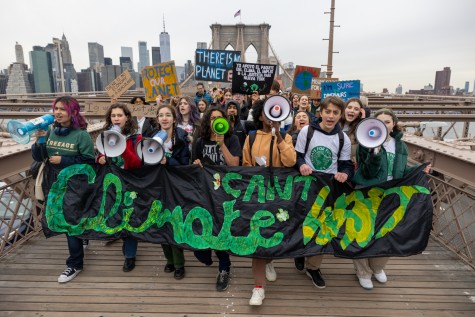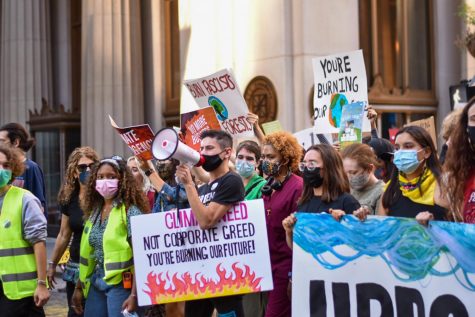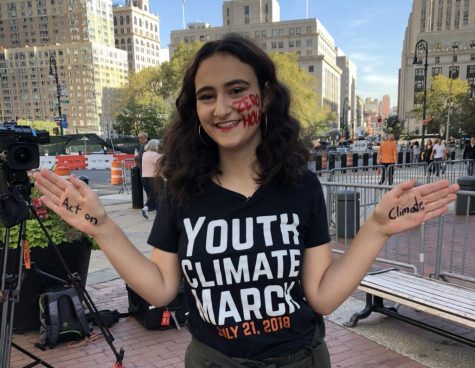NYU Law hosts climate panel
Related Stories
NYU Law hosted a panel on the regulation of greenhouse gas emissions.
Environmental and economic professionals gathered at the NYU School of Law to discuss the recent regulation of greenhouse gas emissions under the Clean Air Act and offer the NYU community an opportunity to foster connections with professionals in law and economics.
The panel was held on Oct. 28, hosted by the Institute of Policy Integrity and moderated by Richard Stewart, faculty director of the Frank J. Guarini Center of Environmental Energy and Land Use Law. The speakers discussed rate-based versus mass-based approaches to regulating greenhouse gases. A mass-based approach regulates greenhouse gases by providing a total number of tons that can be emitted, while a rate-based model regulates the amount of greenhouse gas that can be emitted per hour.
The panel included several policy experts, including Sen. Sheldon Whitehouse of Rhode Island and Jackson Morris, director of the Eastern Energy for Natural Resources Defense Council, who spoke about the benefits of regulating emissions by mass.
“It’s a very attractive proposition to look at a mass-based approach because you don’t have to recreate an entirely new system,” Morris said. “You simply need to adopt smart policies that then will determine whether or not the economic benefit is positive or negative for your state.”
Diane Simon, an international student from France and a recent business management graduate from CUNY said she was impressed with the issues discussed.
“I had a perspective about Americans as being less involved in terms of sustainability, and I’m happy to see that many leaders are willing to make these things happen,” Simon said. “It’s really important that more local people, like those in business or in the military, also advocate for climate change, and not only those from the U.N. or Green Peace.”
In his keynote address, Whitehouse promoted a more universal awareness of upcoming climate change policies, proposing a possible tax on carbon. Whitehouse said 2016 presidential candidates will need a strong climate platform to win.
Derek Sylvan, communications director of Policy Integrity, said he was excited about this year’s workshop, as Policy Integrity has been recently addressing energy and climate issues.
“A lot of us felt that regulating greenhouse gases under the Clean Air Act has the chance to be one of the more transformative public policy issues,” Sylvan said. “I think we were able to get a lot of people here with knowledge about these issues, and we’re hoping it’s something that will contribute to policy discussions at NYU and in New York.”
Simon added that she felt the panel was productive because it gave people with widely varying views on climate regulation a chance to have a conversation.
“There is a real need to see the points of view from people who are creating these policies,” Simon said. “I believe in the invisible hand, but it cannot manage everything, so this event is important in seeing what is done. This is a good step.”
A version of this article appeared in the Wednesday, Oct. 29 print edition. Email Stephanie Grella at [email protected].

































































































































































